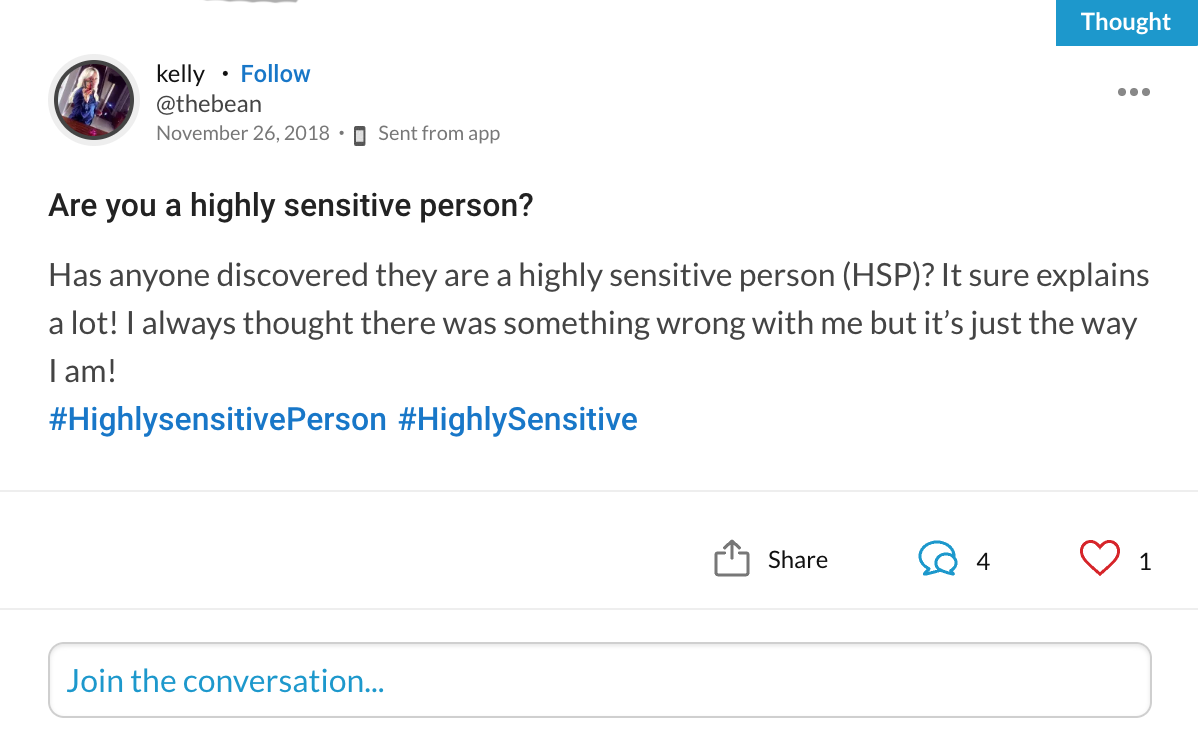How to Deal With Perfectionism as a Highly Sensitive Person
Perfectionism is the pursuit of an ideal way of being: how we act and look or what we achieve, for example. These ideals are often culture-created but can also come from within.
Purpose-driven highly sensitive people (HSPs) are at risk of falling into the trap of perfectionism. You may think there’s an “ideal you” out there that, once attained, will make life smooth sailing.
Dear HSP: I know how painful that is, and I know I could tell you how lovable you are right now, in this moment, exactly as you are. But I know it’s not as easy as that.
These are the types of things I hear from the HSPs I work with (and I’ve been there too!):
“After I lose weight, I’ll feel good about myself.”
“When I’m a better mom/dad/partner/friend/student/employee/entrepreneur, my anxiety will go down.”
“When I get control of my emotions, I’ll be happy.”
Within these sentiments, there’s a flavor of, “When X, then I’ll be good enough.”
While self-growth is empowering, perfectionism never ends well. You see, it isn’t built on the pursuit of excellence but rather the hamster wheel of the fear of not being good enough.
Highly Sensitive People Are Prone to Perfectionism
HSPs are prone to perfectionism in part because we’re so affected by criticism. We try to avoid stinging judgment from others by behaving and performing in a way that’s above reproach. Or, we think we can control our environment by controlling ourselves.
We put a lot of energy into “doing things right” to avoid the overwhelm of being finely-tuned in a harsh world.
We may feel satisfaction for a moment after using just the right words to express ourselves, putting together the perfect outfit, or artfully avoiding a confrontation. But after a short while, we’re back to feeling anxious again and looking for ways to be better and more perfect.
Ugh, it’s exhausting, isn’t it?
Through thousands of hours of supporting highly sensitive people, I’ve learned the key is softening into what’s underneath the perfectionism: anxiety. When we do this, we have the chance to pull the anxiety out by its roots and stop chasing “good enough.”
Join the conversation!
Do you identify as a highly sensitive person? Answer this Mighty member in the Thought below.

How to Step Out of Perfectionism
When you notice you’re feeling pressure to be perfect or setting unrealistic standards, start by stating just that: “I’m expecting a lot of myself right now,” or “I’m feeling pressure to be perfect.”
Seriously, try saying it out loud.
Then, take a deep breath.
What’s it like to recognize that you’re carrying that weight?
You might notice a release or deep exhale. You might feel sad at realizing how much pressure you feel. Or you may feel like you just stated the obvious and that the expectations are appropriate.
Whatever your response, that’s OK.
Take another deep breath.
What’s Underneath the Perfectionism?
Now that you’ve taken that first step, go a bit deeper.
Ask yourself, “what’s underneath this pressure? Is it fear or anxiety? If it’s fear, what am I afraid of?”
If you really look, I bet your response will be something about fear. Fear and anxiety tend to be the drivers of most internal criticism and unrealistic standards.
Your response may sound something like this: “I’m expecting so much of myself because I’m afraid that if I don’t, I’ll look ‘stupid,’ be judged or feel ashamed.”
Do you see that now we’re looking at something entirely different? Not a performance issue, but an emotion issue.
See if you can let yourself feel your vulnerability, the experience underneath your high standards.
Take another deep breath.
Put your hand on your heart and say, “This is hard. I’m feeling scared. And I’m putting a lot of pressure on myself in an attempt to feel less afraid. Unfortunately, that doesn’t work. The best thing I can do is have compassion for myself, reassure myself and coach myself through this situation as kindly as possible.”
I’ll use myself as an example. While writing this article, perfectionism said to me, “Brooke, this blog isn’t good enough. Make it better, or else…”
Using the process I’m teaching you, I asked myself, “what’s underneath those harsh words, that perfectionism?” What I heard was something like: “I’m afraid my words aren’t good enough, and I’m not good enough. I’m afraid of looking foolish.”
In response to that tenderness, I told myself, “I know this is vulnerable to put myself out there. I’m doing the best I can, and that’s good enough! I’m so proud of myself for having the courage to be vulnerable.”
With those words, I immediately noticed the tension lighten and the criticism soften.
And you know what? We might have to do this process over and over again. But little by little, the anxiety will lighten and the perfectionism will become quieter.
To summarize, here are the steps to soften your perfectionism:
1. Notice and name that you’ve set unrealistic standards
2. Ask yourself what your fears are underneath the perfectionism
3. Use comforting, reassuring and loving words to speak to your vulnerability
4. Feel the perfectionism soften
5. Repeat as often as needed
When we operate like this, it’s so much easier to go about our day with self-compassion. We can pursue the things important to us because shame isn’t knocking on the door.
And one day, you’ll realize you haven’t heard your inner critic in a while, and you truly feel good enough.
Learn more on the author’s website.
Photo by Max on Unsplash

